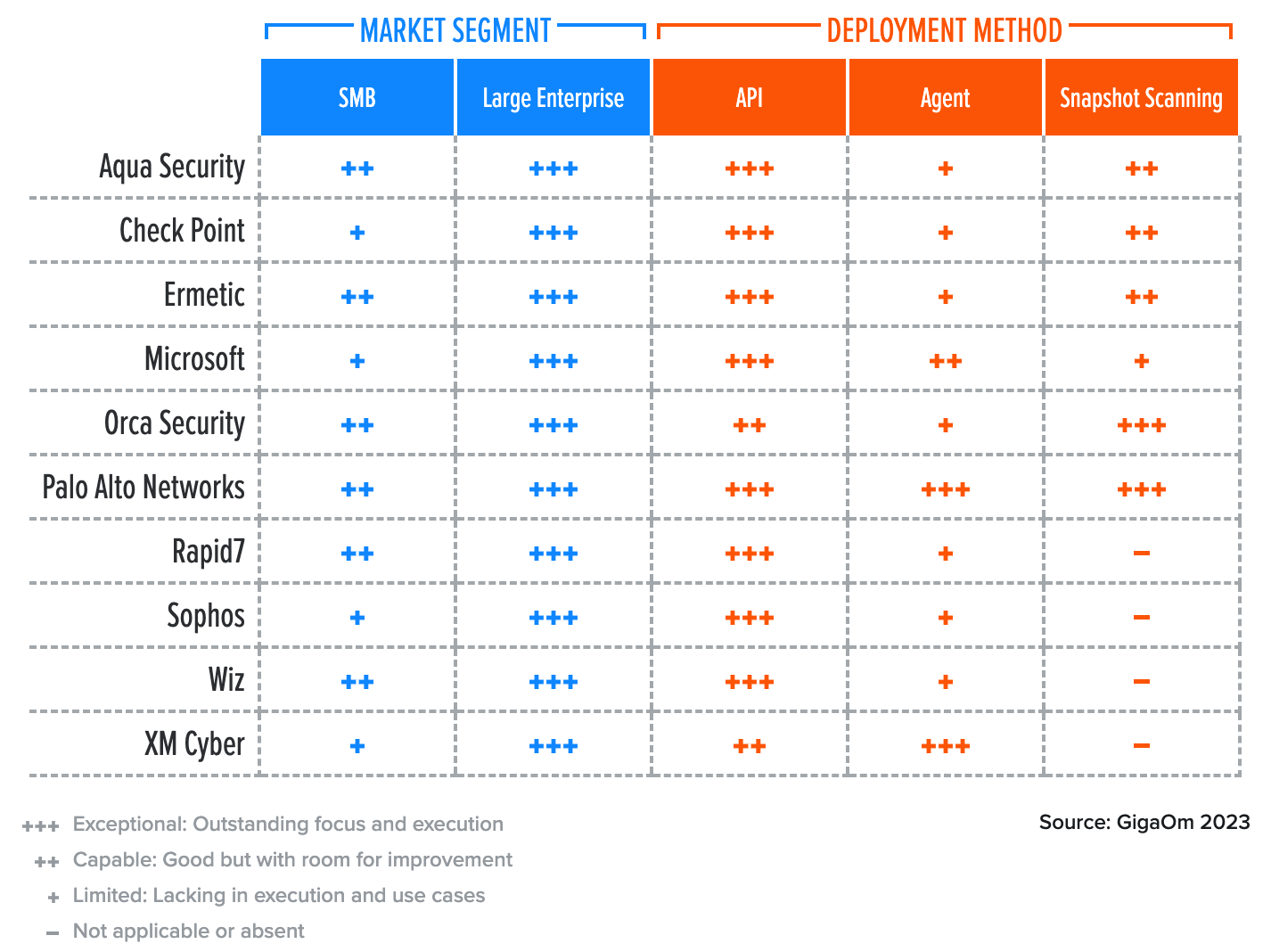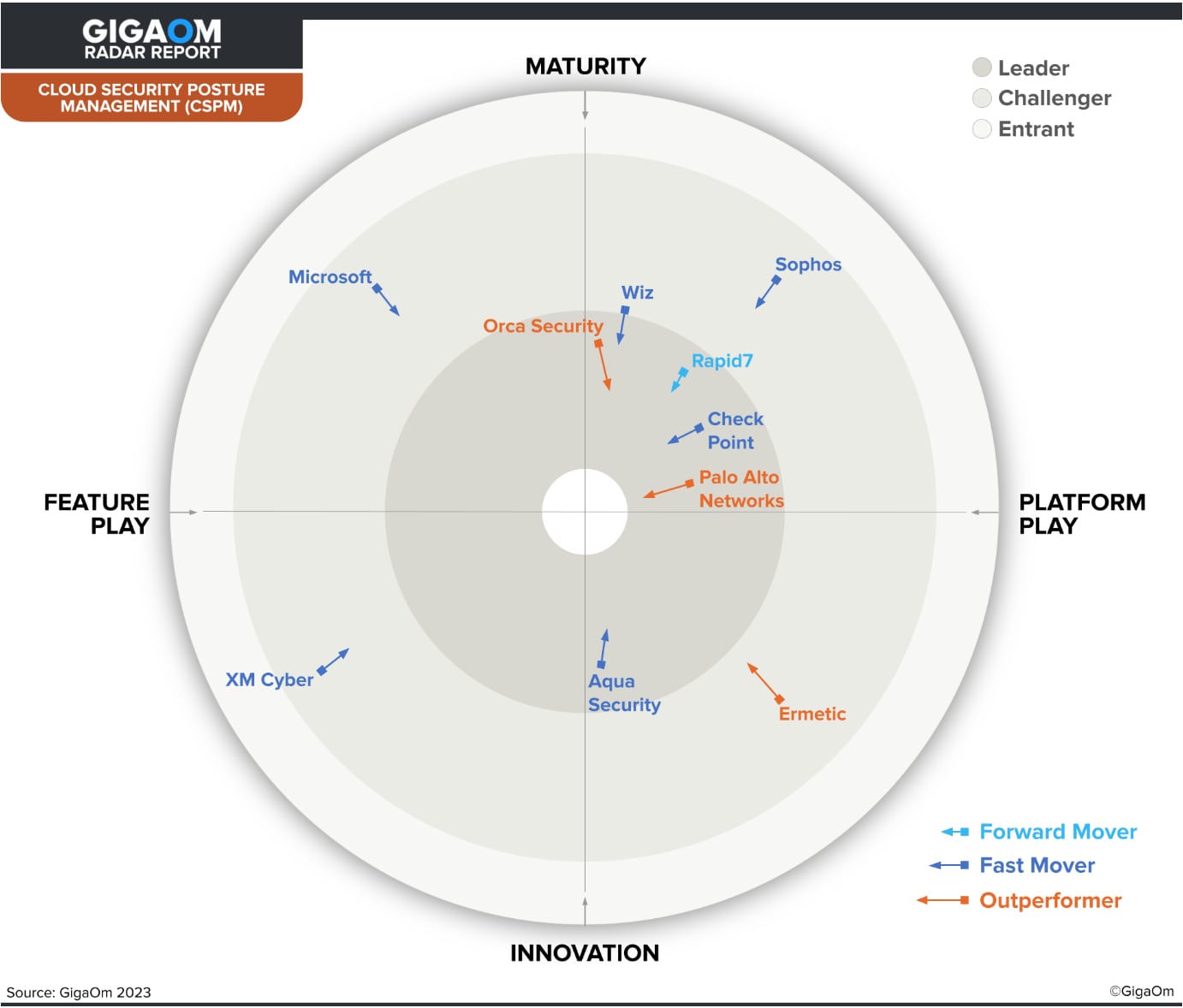Moving to the cloud comes with technical complexities — security being one. Addressing the misconfigurations and risks contributes to this complexity, leading to data breaches and compliance pains.
Organizations are turning to cloud security posture management (CSPM) to reduce risk across multicloud environments. Industry analyst firms, like GigaOm, have done rigorous research on the CSPM market including how customer needs have changed over time, the value of current tools, and where the market is going next.
The Scope of CSPM Has Shifted
For several years, the market had assimilated CSPM tools to just three key functions:
- Visibility across cloud assets
- Misconfiguration detection and remediation
- Compliance monitoring
The majority of organizations today consider these capabilities table stakes, and the scope of CSPM has shifted. Customers tell me they expect CSPM tools to gain visibility across more types of cloud issues, such as vulnerabilities, threats, excessive permissions and security issues in source code.
GigaOm is hearing similar things from their users. According to GigaOm, “CSPM solutions can monitor and identify security risks, such as misconfigurations, vulnerabilities and risks inside of workloads and CI/CD tooling.”
Evaluating CSPM Providers
At Palo Alto Networks, we’ve noticed the cybersecurity industry flooded the market with more than 20 CSPM tools, including pure-play security vendors and diversified vendors. With numerous vendors on the market offering CSPM, organizations are now challenged with identifying the best partner for their business.
Researchers at GigaOm likely conducted a CSPM market evaluation for the second year in a row — also known as the GigaOm Radar for Cloud Security Posture Management (2023) — for this reason, to keep pace with the rapidly evolving market. The latest edition of the report analyzes 10 CSPM vendors and measures their ability to identify and mitigate cloud security risks using 15 criteria.
A CSPM Leader 2 Years in a Row
We’re thrilled Prisma® Cloud by Palo Alto Networks is recognized as a CSPM Leader and Outperformer in the latest report. Moreover, we’re proud to stand unrivaled as the only vendor to receive both Leader and Outperformer recognitions for 2 consecutive years.
The Radar report weighs CSPM vendors on current offerings and product roadmap. According to GigaOm, “The closer to center a solution sits, the better its execution and value, with top performers occupying the inner Leaders circle.” The firm also noted, “The GigaOm Radar offers a forward-looking assessment, plotting the current and projected position of each solution over a 12- to 18-month window. Arrows indicate travel based on strategy and pace of innovation, with vendors designated as Forward Movers, Fast Movers, or Outperformers based on their rate of progression.”
Prisma Cloud received exceptional remarks across 11 categories: multicloud support, AI-driven analysis, automated remediations, flexibility, scalability, licensing, large enterprise market segment and deployment methods, including API, agent and snapshot scanning.

At Palo Alto Networks, we believe our differentiated threat detection, supply chain security, flexible deployment options and clear vision for code-to-cloud security sets Prisma Cloud apart.
“Prisma Cloud, a platform from Palo Alto Networks, delivers insights across various public cloud services, encompassing infrastructure, workloads, identity and code-scanning functions.” GigaOm announced. “With the emphasis on real-time visibility, the company aims to ensure continuous, up-to-date cloud security oversight.”

This leadership designation recognizes the best-in-class Cloud Security Posture Management capabilities built into our Cloud-Native Application Protection Platform (CNAPP).
Prisma Cloud: The Code-to-Cloud CNAPP
Prisma Cloud protects applications from code to cloud. The platform delivers continuous visibility and threat prevention throughout the application lifecycle, including robust defense against zero-day threats. By enabling collaboration between security and DevOps teams, it accelerates the development and deployment of secure cloud-native applications. As a single-vendor CNAPP, Prisma Cloud’s proven scalability secures more than 4 billion cloud resources and processes over 1 trillion cloud events daily.
“Prisma Cloud supports the six largest public clouds — AWS, Azure, GCP, Oracle, Alibaba and IBM Cloud — a wider-than-typical spectrum of cloud integrations,” as noted by GigaOm. The organization goes on to highlight various strengths.
“Threat detection is a standout capability in Prisma Cloud that leverages ML, Palo Alto Networks Unit 42 threat feed, UEBA and a newly introduced attack path analysis feature. Prisma Cloud identifies anomalous events, malicious actions and threats across the client’s cloud — including distributed denial of service (DDoS) attacks, botnets, ransomware, cryptomining and other potentially harmful activities — improving visualization and simplifying comprehension of intricate cloud-native risks. Palo Alto Networks WildFire malware prevention engine lends its feature set to Prisma Cloud, offering a unique threat intelligence source that results from scanning the customer’s workloads, infrastructure and code.”
With the trust of over 2000 enterprises, Prisma Cloud is the ultimate partner for a secure cloud journey.
Get the Report
If you’d like to learn more, download your copy of the 2023 GigaOM Radar for Cloud Security Posture Management.